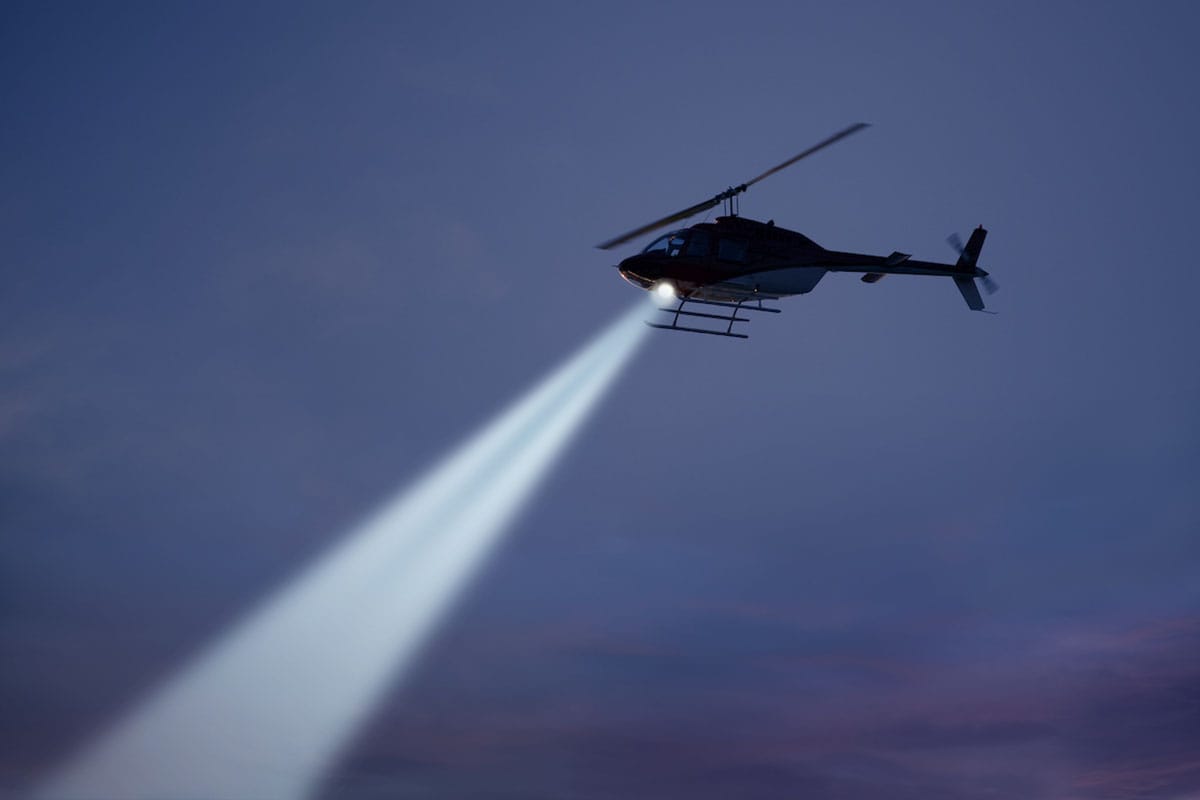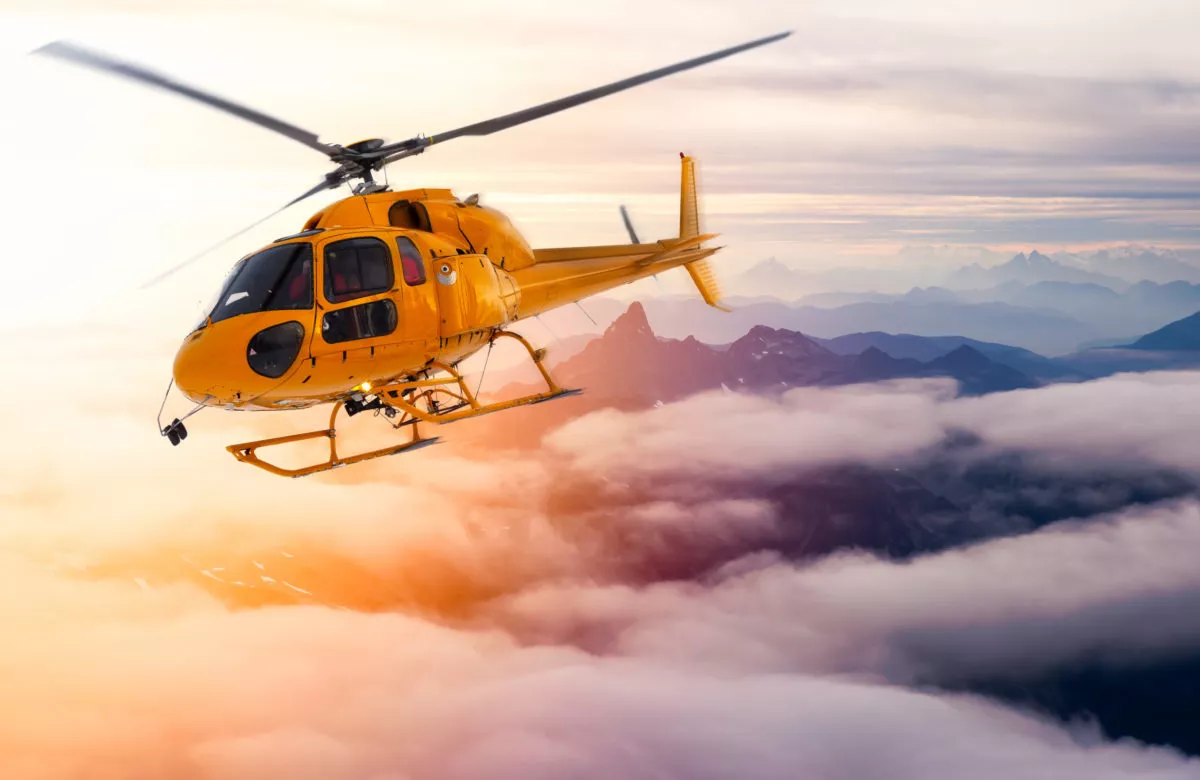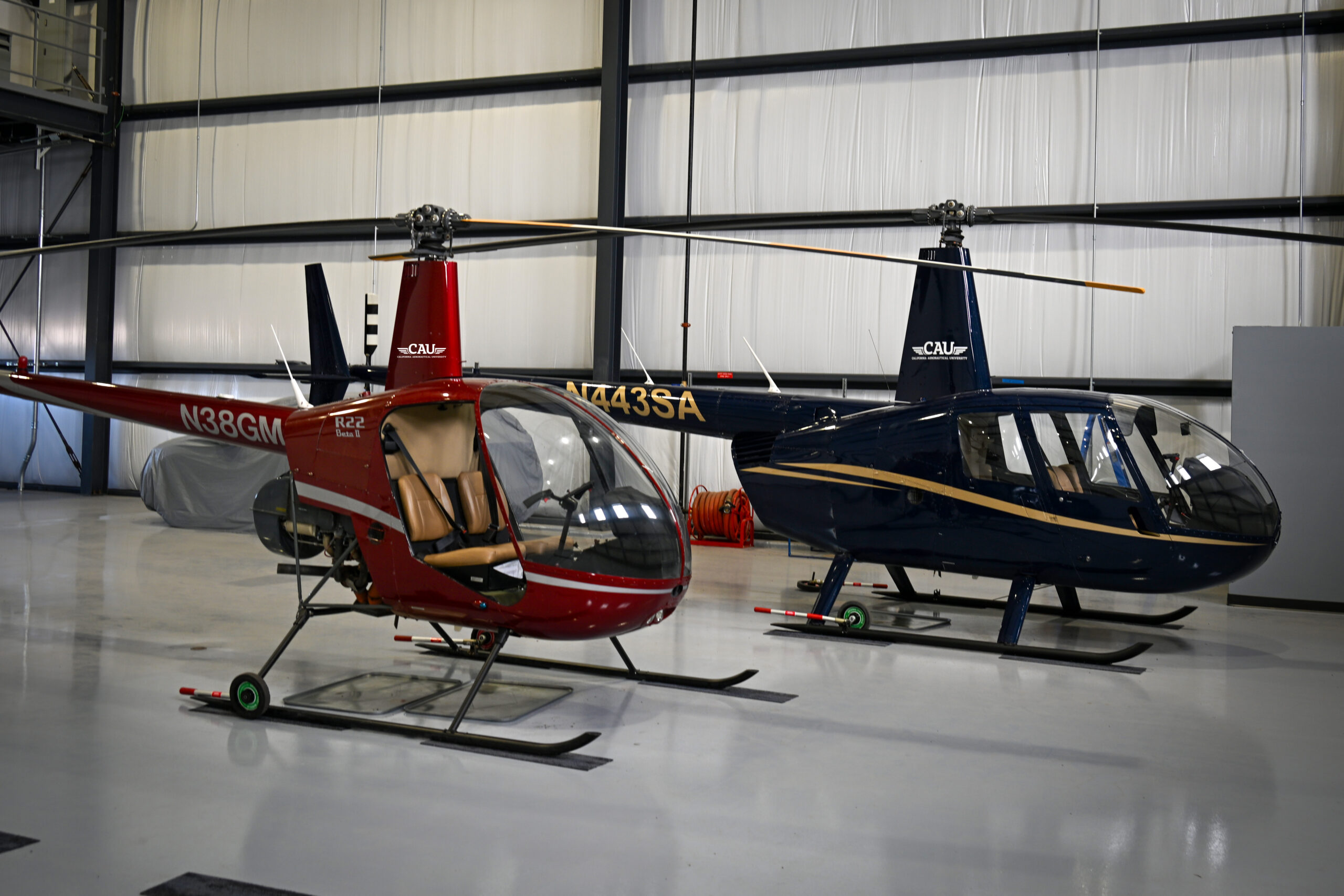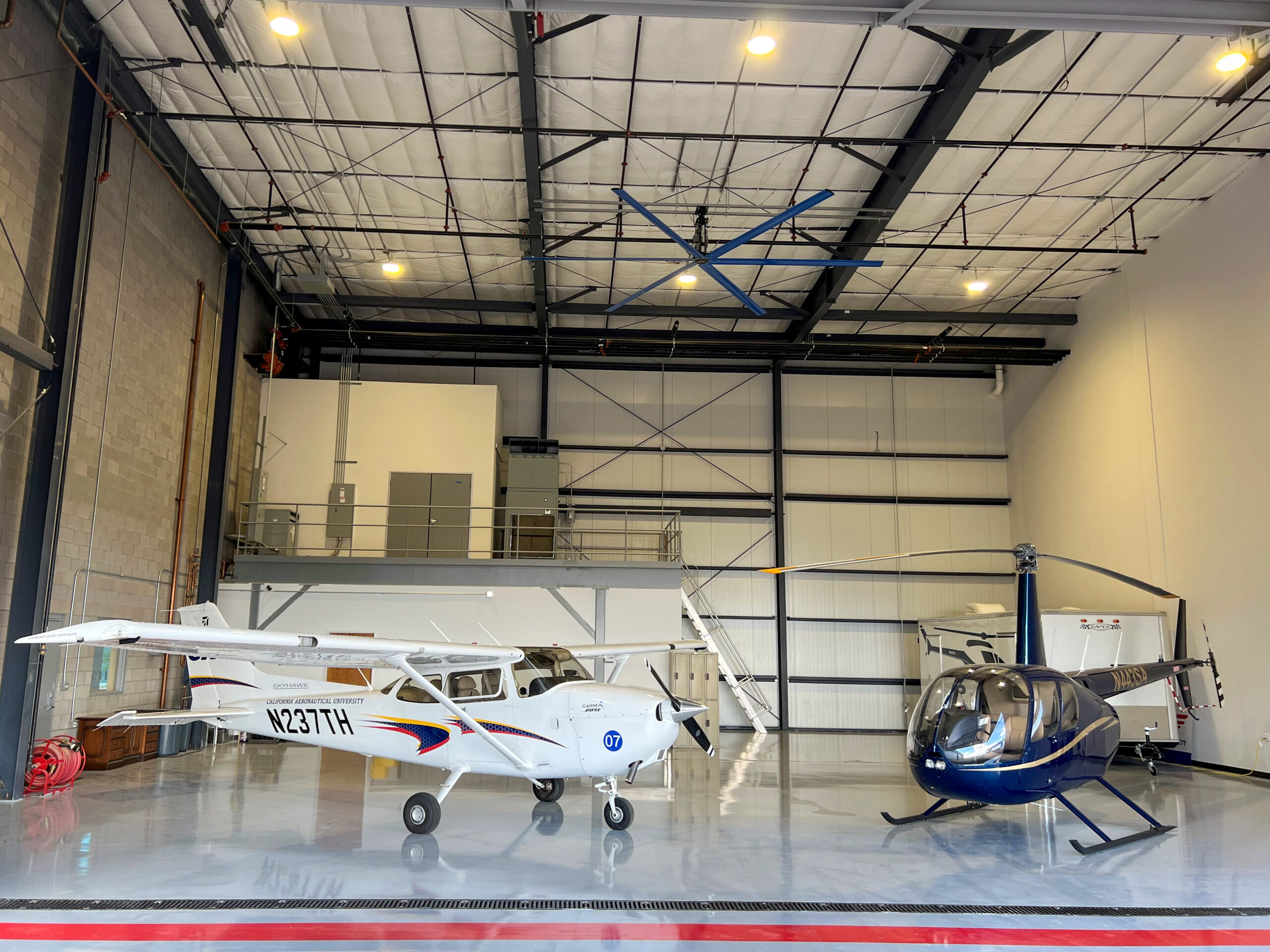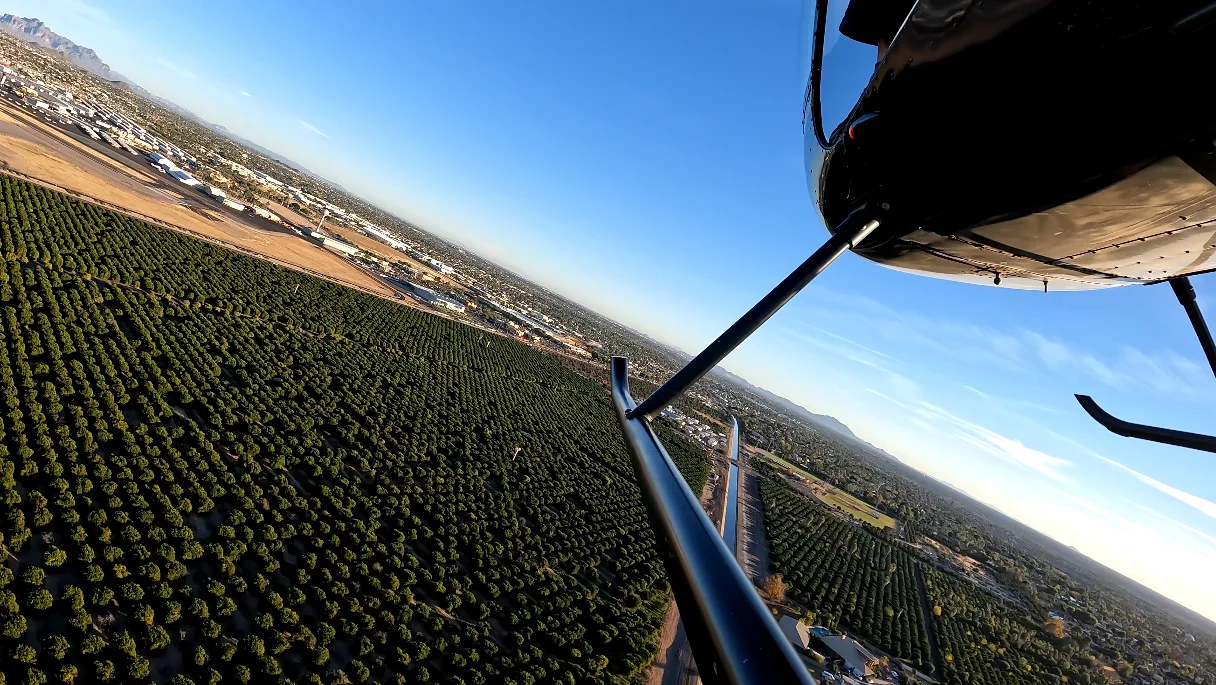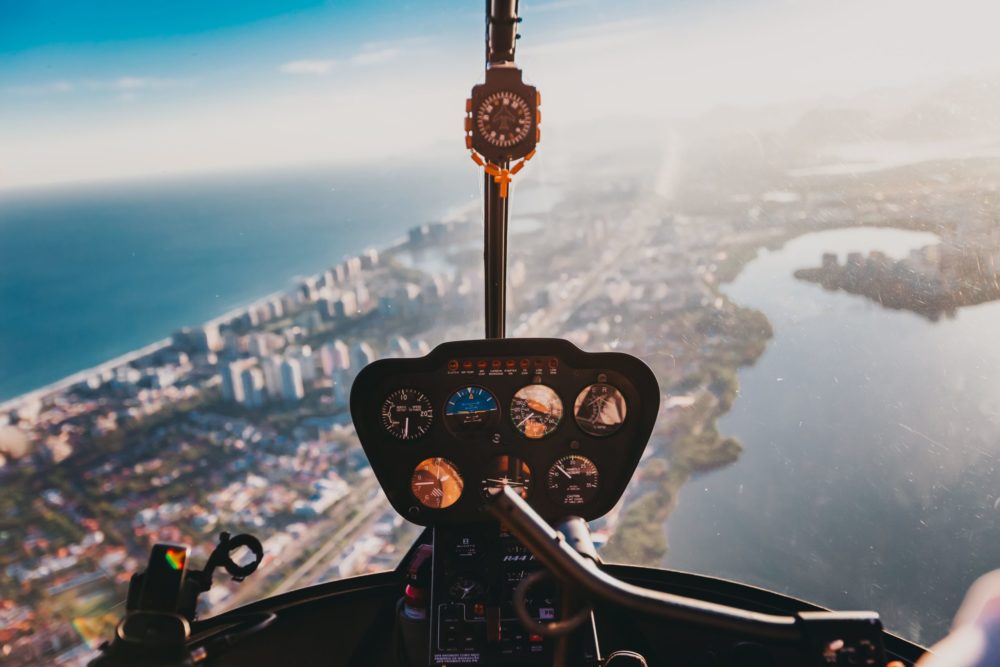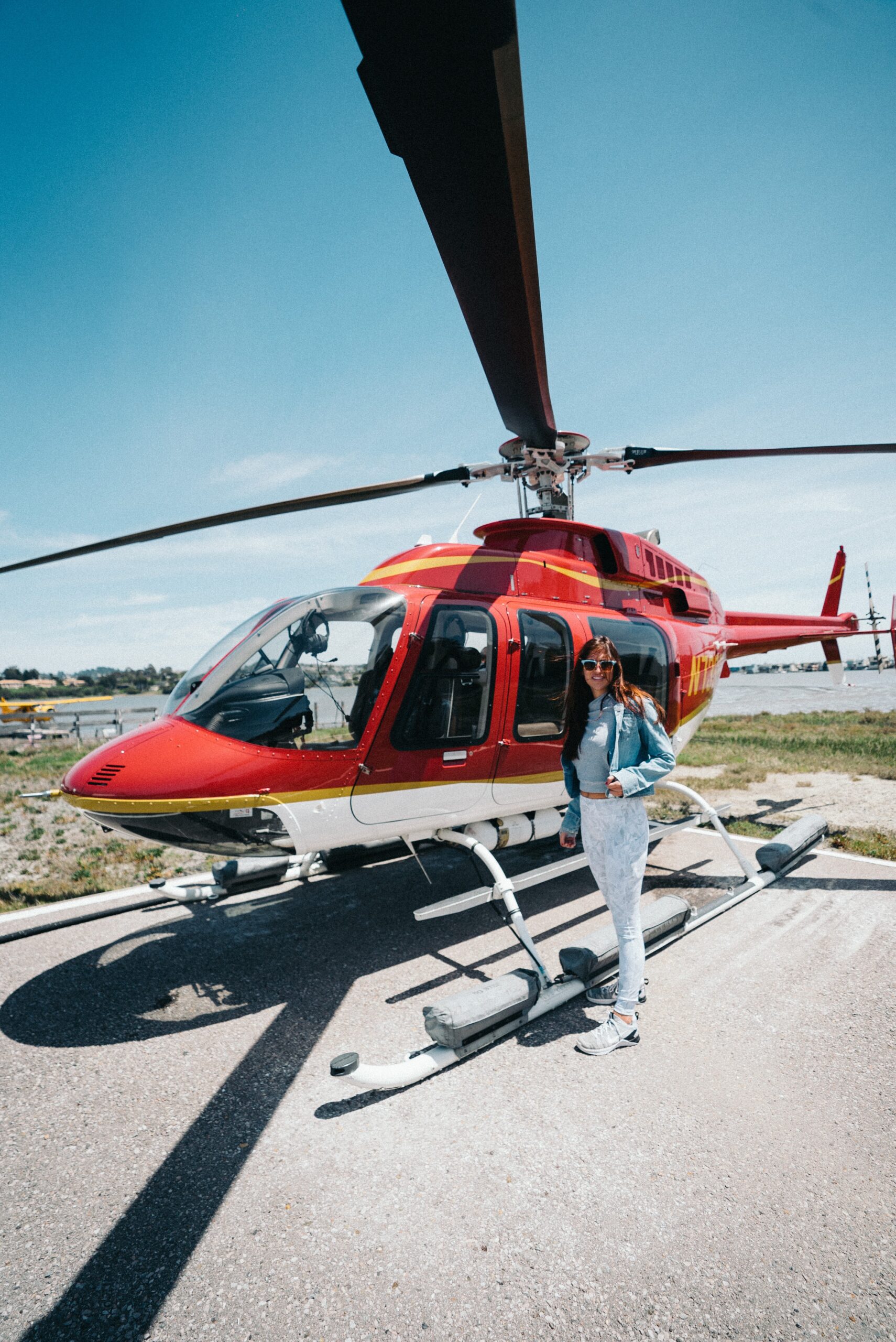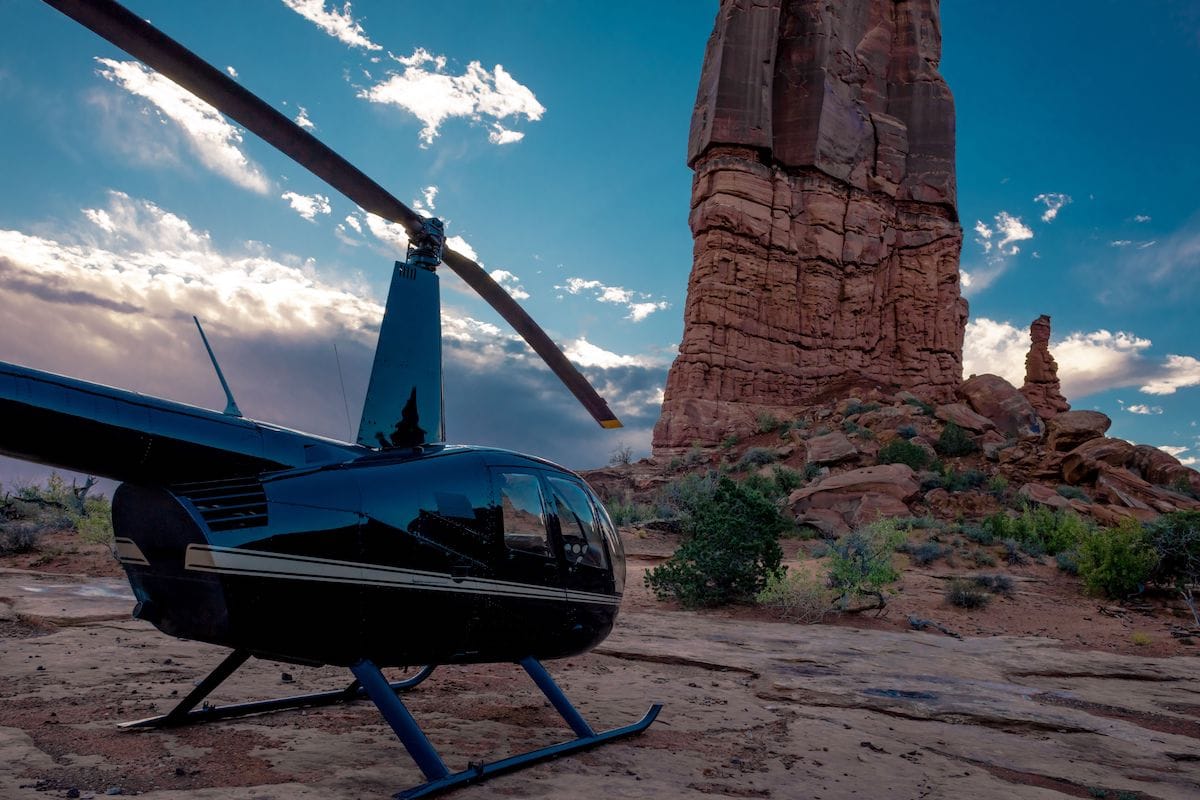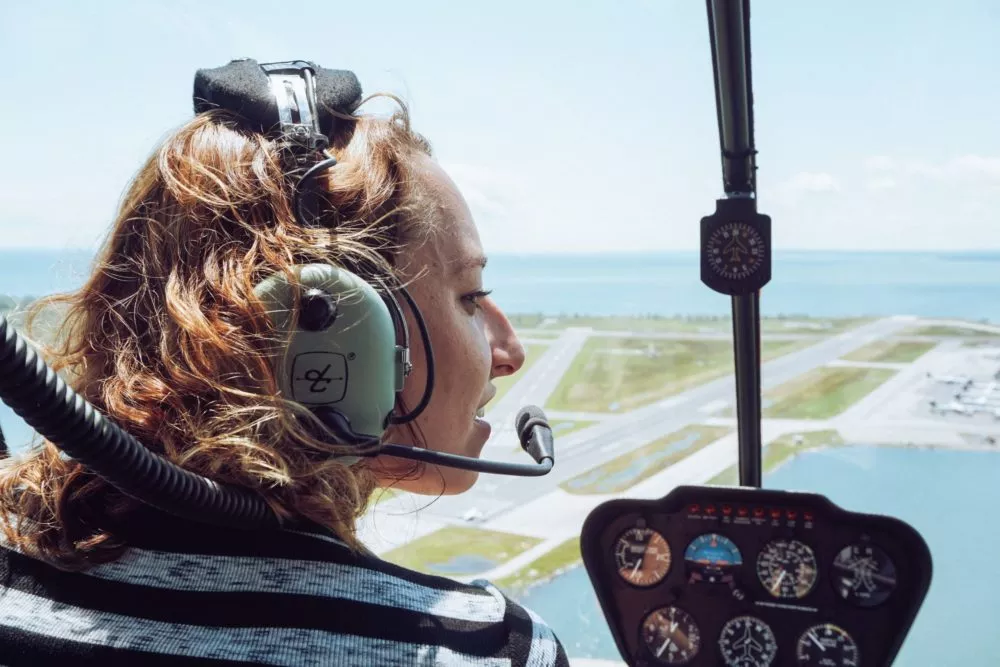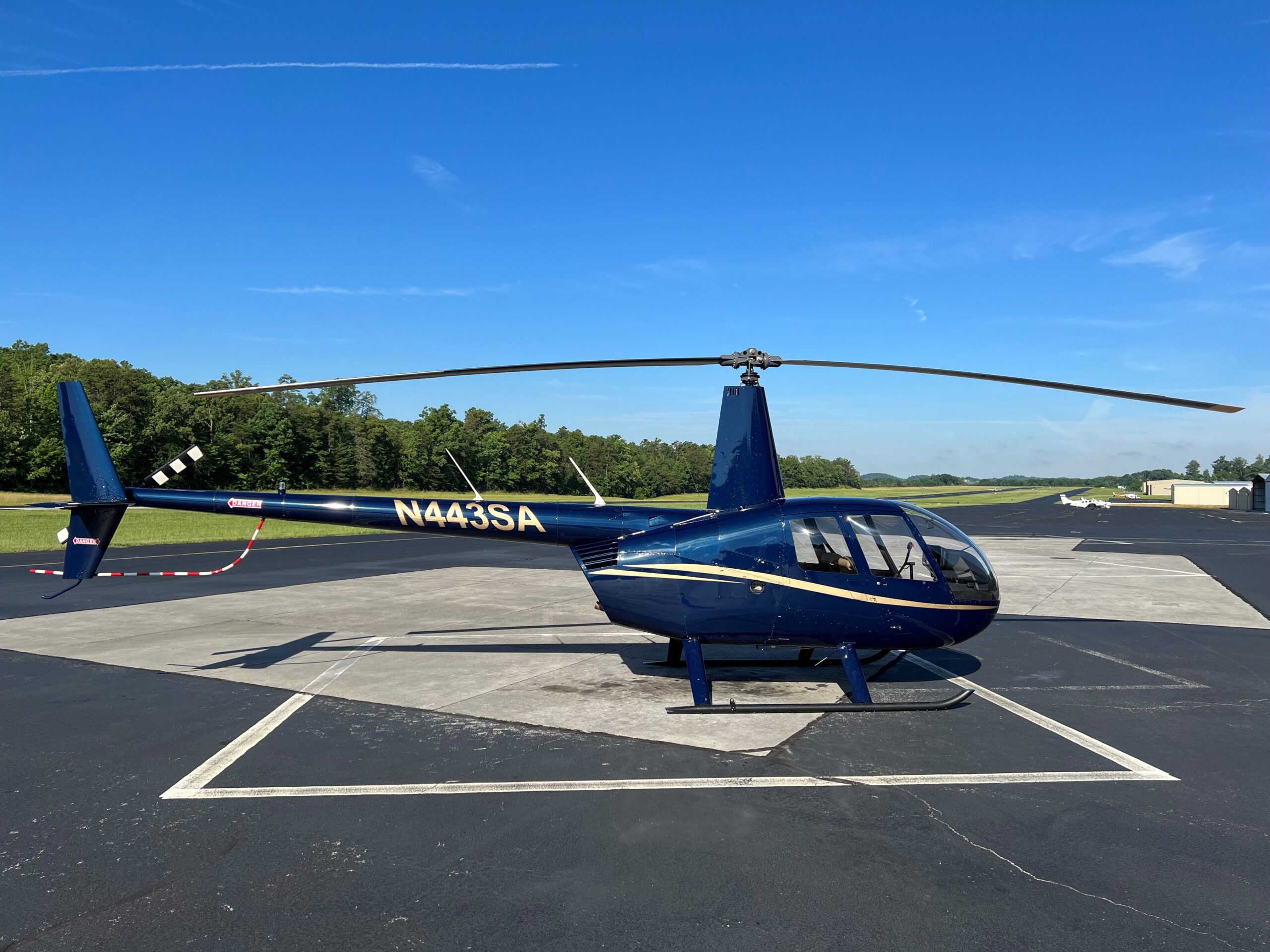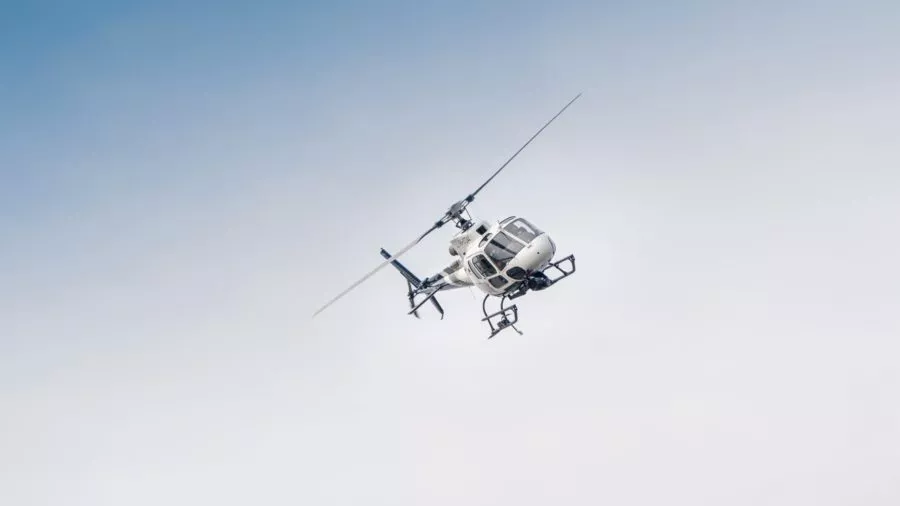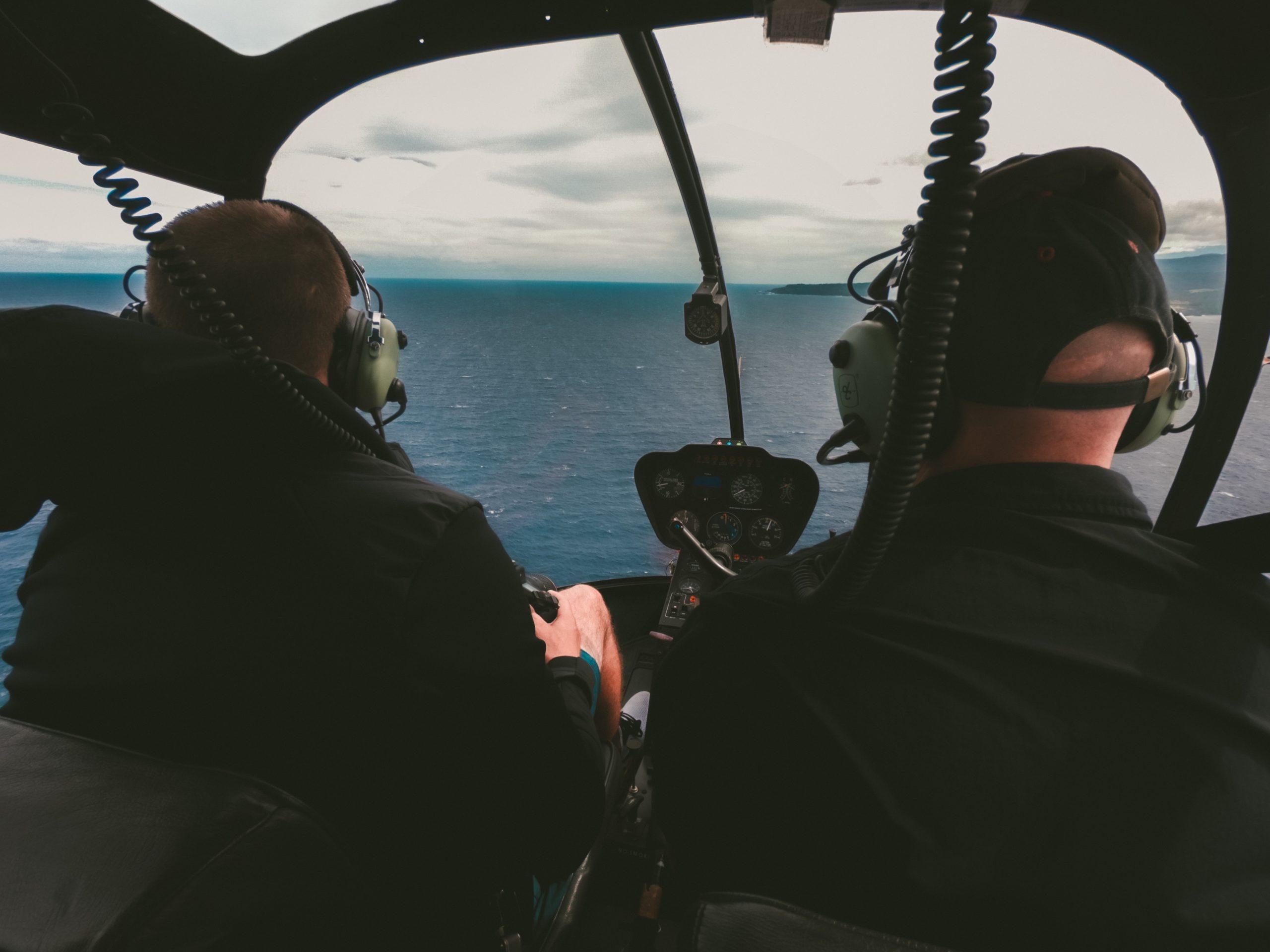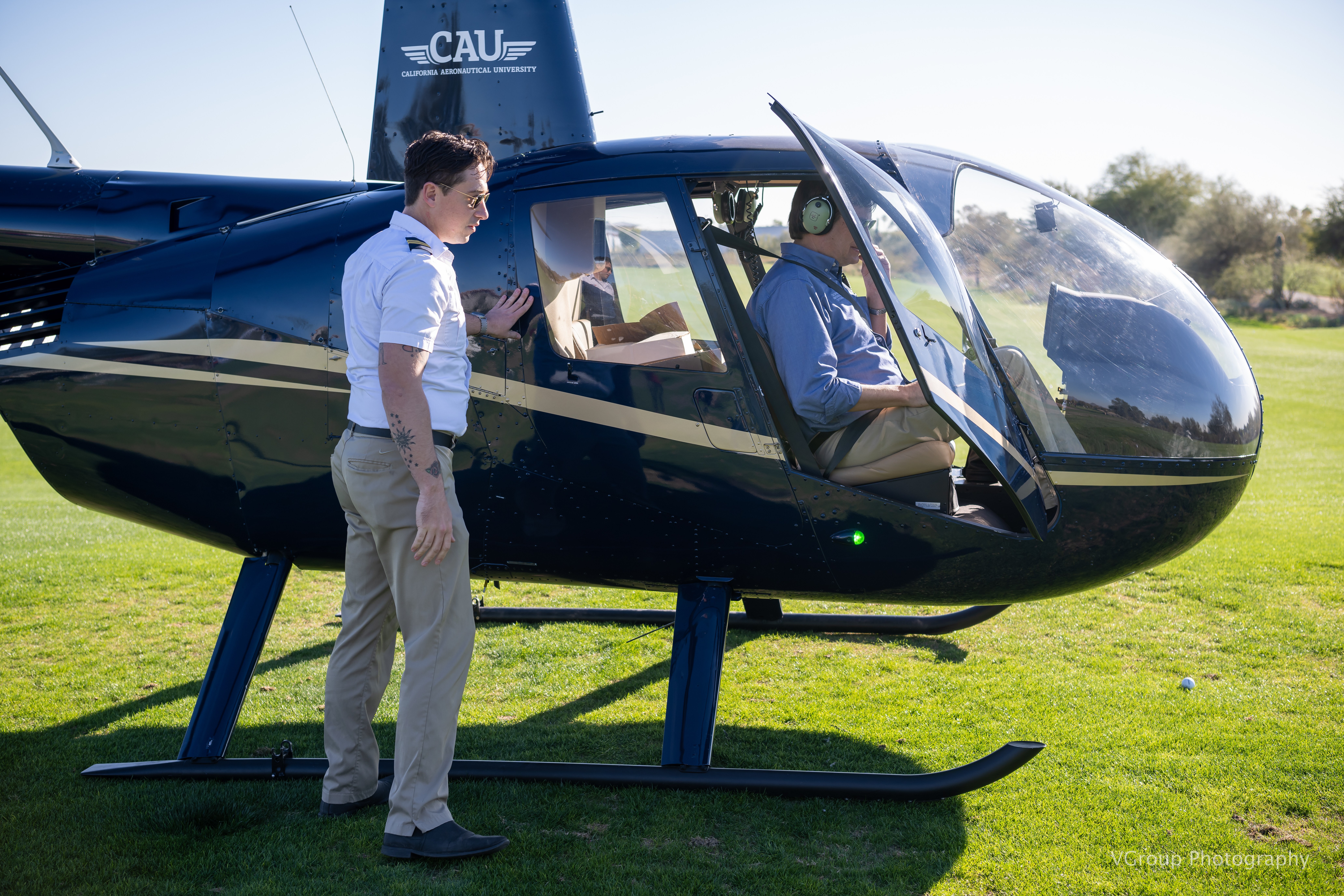Helicopter pilots are integral members of our aviation ecosystem. You’ve probably seen them on the movie screen or featured on your local news station, providing crucial air transportation to fight fires, or heroically rescuing stranded individuals who can’t be reached with any other aircraft.
As highly skilled and trained professionals, helicopter pilots navigate complex aerial terrains, execute daring maneuvers, and provide critical support in various industries, including tourism, emergency medical services, news media, and military operations.
Whether in a civilian or military role, the work of a helicopter pilot can be challenging and offer a variety of adrenaline-packed experiences. These pilots possess a unique blend of precision, adaptability, and the desire to navigate through distinctively diverse environments. And often, they love the thrill and adventure that being a helicopter pilot offers.
Helicopter Pilot vs Airplane Pilot
Helicopter pilots are trained to operate helicopters, a versatile aircraft capable of vertical takeoff and landing.
Unlike an airplane that relies on fixed wings to achieve flight, i.e. a ‘fixed-wing aircraft,’ a helicopter achieves flight through the rotation of rotor blades. With unique agility and maneuverability, helicopters can also hover and fly backwards and sideways, whereas an airplane primarily flies forward and needs a runway for takeoffs and landings.
Both helicopter pilots and airplane pilots require extensive training, but helicopter pilots must undergo specialized training to safely manage the complex nature of helicopter flight maneuvers
Commercial Helicopter Pilot Careers
With unmatched agility and precision, flying a helicopter is a unique and unparalleled career option that can offer rewarding experiences and open doors to a world of exhilarating flights.
Plus, as Boeing indicates in its Pilot and Technician Outlook, the world has been facing an unprecedented pilot shortage. With increasing levels of air travel activity and limited training capacity to support the pilot shortage, the global aviation ecosystem needs qualified commercial pilots to lead us through the industry’s unique challenges and opportunities, including professional helicopter pilots.
If you’re ready for the thrill and challenge of working as a helicopter pilot but aren’t sure what type of career is available to you, consider these helicopter pilot positions.
Healthcare
Emergency Medical Services (EMS) Helicopter Pilot
An emergency medical services (EMS) pilot is responsible for providing air medical transport support. These helicopter pilots work closely with medical staff on board the helicopter as they transport injured patients to hospitals or medical centers. They can also transport medical personnel or medical equipment to the scene of accidents or emergencies.
Along with helicopter training, emergency medical services pilots also receive specialized training in emergency procedures as they play a crucial role in providing timely and lifesaving medical care.
- Typical Helicopter Models: Airbus H135, Bell 429, Leonardo AW109, Eurocopter EC145
- Roles: Transporting patients to hospitals quickly; responding to medical emergencies in remote or hard-to-reach areas.
- Average Salary: $70,000 - $90,000 per year (Source: PayScale - EMS Helicopter Pilot Salary)
Law Enforcement & Public Safety
Police Helicopter Pilot
If you’re looking to serve your community as a helicopter pilot, a career in law enforcement might be for you. A law enforcement pilot flies a helicopter for a law enforcement agency or police department.
This type of pilot works closely with law enforcement officers on the ground in shared objectives and operations. Examples of job duties of a law enforcement helicopter pilot might include patrolling from the sky, providing aerial support during pursuits, assisting in search and rescue missions, and conducting surveillance.
To qualify for this career option, a helicopter pilot not only needs to meet helicopter flight-hour requirements and obtain the necessary FAA certifications, but also needs to successfully complete the agency’s specific job and training requirements.
- Typical Helicopter Models: Airbus H125, Bell 407, MD 500, Sikorsky UH-60 Black Hawk
- Roles: Assisting police departments in aerial surveillance; supporting search and rescue operations.
- Average Salary: $65,000 - $85,000 per year (Source: Glassdoor - Law Enforcement Helicopter Pilot Salary
Firefighting Helicopter Pilot
- Typical Helicopter Models: Sikorsky S-70 Firehawk, Bell 412, Kaman K-MAX, Erickson S-64 Aircrane
- Roles: Assisting in aerial firefighting operations; dropping water or fire retardant on wildfires.
- Average Salary: $75,000 - $100,000 per year (Source: PayScale - Firefighting Pilot Salary)
Search and Rescue Helicopter Pilot
Search and rescue (SAR) pilots are helicopter pilots who are dedicated to performing search and rescue operations and play a critical role in saving lives. When a hiker is lost in the wilderness or when someone is stranded due to a natural disaster, a search and rescue pilot might be called in.
Helicopters can take off and land vertically, maneuver more easily than other aircraft, and offer specific technology that can aid in successful search and rescue missions, like thermal imaging, night vision, and specialized GPS systems.
A search and rescue pilot typically works within time-sensitive constraints which requires strong decision-making skills. They can work in a variety of industries, including the military, law enforcement, or private rescue organizations.
- Typical Helicopter Models: Sikorsky S-92, Leonardo AW139, Airbus H145, Bell 412
- Roles: Conducting search and rescue missions; operating in various environments and challenging conditions.
- Average Salary: $60,000 - $80,000 per year (Source: Glassdoor - Search and Rescue Pilot Salary)
Military Helicopter Careers
Military helicopter pilots are specialized members of the United States’ armed forces who operate helicopters for a variety of purposes. Whether in a combat or non-combat role, military pilots can transport cargo, provide air support to ground or sea-dwelling troops, perform medical evacuations, or even lead search and rescue missions.
To become a military pilot, the helicopter pilot not only needs to meet helicopter flight-hour requirements and obtain the necessary FAA certifications, but also needs to be successfully selected to join the military branch of choice and complete specific training requirements.
If you’re interested in being a military helicopter pilot for the Army, Navy, Marines, or other branch of the military, be sure to research the specific requirements and steps to start this career choice.
Army Helicopter Pilot
- Typical Helicopter Models: Sikorsky UH-60 Black Hawk, Boeing AH-64 Apache, Bell OH-58 Kiowa, Eurocopter UH-72 Lakota
- Roles: Flying attack, reconnaissance, and transport helicopters; supporting ground troops and logistical operations.
- Average Salary: $60,000 - $80,000 per year (Source: Glassdoor - Army Helicopter Pilot Salary)
Navy Helicopter Pilot
- Typical Helicopter Models: Sikorsky MH-60 Seahawk, Bell TH-57 Sea Ranger, Northrop Grumman MQ-8 Fire Scout
- Roles: Operating from ships and aircraft carriers; conducting maritime reconnaissance, search and rescue, and transport missions.
- Average Salary: $60,000 - $80,000 per year (Source: Glassdoor - Navy Helicopter Pilot Salary)
Air Force Helicopter Pilot
- Typical Helicopter Models: Sikorsky HH-60 Pave Hawk, Boeing MH-139 Grey Wolf, Bell UH-1N Huey
- Roles: Conducting search and rescue, special operations, and personnel recovery missions; supporting air mobility and combat operations.
- Average Salary: $60,000 - $80,000 per year (Source: Glassdoor - Air Force Helicopter Pilot Salary)
Marine Helicopter Pilot
- Typical Helicopter Models: Sikorsky CH-53E Super Stallion, Bell AH-1Z Viper, Bell UH-1Y Venom
- Roles: Providing close air support, assault support, and reconnaissance; operating from amphibious assault ships and supporting Marine ground forces.
- Average Salary: $60,000 - $80,000 per year (Source: Glassdoor - Marine Corps Helicopter Pilot Salary)
Coast Guard Helicopter Pilot
- Typical Helicopter Models: Sikorsky MH-60 Jayhawk, Airbus MH-65 Dolphin
- Roles: Conducting search and rescue, law enforcement, and environmental protection missions; patrolling coastal and maritime areas.
- Average Salary: $60,000 - $80,000 per year (Source: Glassdoor - Coast Guard Helicopter Pilot Salary)
Infrastructure
Agriculture Helicopter Pilot
Agriculture pilots are prominent members of the agricultural and farming industry. If you’d enjoy flying over serene farmland and countryside, which may offer seasonal opportunities, a career as an agriculture pilot might be for you.
Also known as an aerial applicator pilot or crop duster pilot, these helicopter pilots help improve a crop’s productivity and enhance yields through the aerial application of specialized fertilizer or pesticide.
The agriculture helicopter pilot may fly a helicopter that is rigged with specialized equipment to spray agricultural chemicals. It’s important for the agriculture pilot to understand how to operate this equipment, including how to minimize environmental impact.
- Typical Helicopter Models: Bell 206 JetRanger, Robinson R44, Airbus H125, Enstrom F-28F
- Roles: Performing aerial application of pesticides and fertilizers; surveying and managing large agricultural areas.
- Average Salary: $50,000 - $70,000 per year
Offshore Oil & Gas Pilot
An offshore pilot is a helicopter pilot who works for the oil and gas industry. With oil platforms and rigs located in remote areas of the ocean, or ‘offshore,’ the primary responsibility of an offshore pilot is transporting workers, equipment, and supplies back and forth from the offshore platform to land, or between platforms.
Being able to safely fly a helicopter over the ocean, including understanding its unique weather and environmental conditions, is paramount to the responsibility of an offshore pilot.
- Typical Helicopter Models: Sikorsky S-92, Airbus H175, Leonardo AW139, Bell 412
- Roles: Transporting personnel and equipment to offshore oil rigs; operating in challenging weather and sea conditions.
- Average Salary: $80,000 - $120,000 per year
Cargo Helicopter Pilot
As a commercial helicopter pilot, you can transport passengers, cargo, or both. A cargo pilot exclusively transports cargo from one location to another. The types of cargo that you can deliver might include medicine, food, retail merchandise, equipment, mail, or supplies for a company.
Because a helicopter can take off and land vertically, they can access some destinations that other aircraft cannot reach. This makes them an ideal option for transporting supplies to remote locations, like delivering medical supplies for humanitarian aid.
A variety of industries need this type of helicopter pilot, including logistics, private organizations, humanitarian companies, and firefighting services. Cargo pilots play a crucial role in ensuring the movement of goods and materials is executed safely and efficiently.
- Typical Helicopter Models:
- Roles:
- Average Salary:
Corporate & Business Aviation
Corporate Helicopter Pilot
A corporate helicopter pilot is someone who flies a helicopter professionally for a corporation, business, or individual. Some large companies, like commerce giants Amazon and Walmart or multinational corporations, have an in-house flight department for a variety of purposes, including transporting key executives to business functions around the country, to maximize productivity and accelerate strategic transactions.
Corporate pilots may be employed directly by a corporation or by another aviation service that provides helicopter transportation to businesses on demand.
- Typical Helicopter Models: Sikorsky S-76, Airbus H145, Bell 429, Leonardo AW139
- Roles: Flying company executives and employees; operating corporate-owned helicopters.
- Average Salary: $80,000 - $120,000 per year (Source: ZipRecruiter - Corporate Helicopter Pilot Salary)
Charter Helicopter Pilot
A charter pilot is a professional helicopter pilot who flies helicopters that have been rented, or ‘chartered,’ for a variety of purposes. A charter pilot typically works for a private charter company that offers on-demand helicopter flights to a client’s desired destination.
As a helicopter pilot in the service industry, possessing excellent customer service skills is vital to ensure clients enjoy their experience enough to book another chartered flight, if needed.
- Typical Helicopter Models: Sikorsky S-76, Airbus H145, Bell 429, Leonardo AW139
- Roles: Flying company executives and employees; operating corporate-owned helicopters.
- Average Salary: $80,000 - $120,000 per year
Tourism, Sport, and Recreation
Helicopter Tour Pilot
Do you like the idea of taking tourists sightseeing through beautiful landscapes and popular landmarks from the cockpit of a helicopter? A tour pilot might be the career for you.
Acting as a tour guide and offering interesting facts and commentary, a tour pilot conducts sightseeing helicopter flights for passengers. Having strong interpersonal skills is beneficial as the helicopter pilot will be interacting with guests and answering questions.
Whether flying over scenic landscapes of the Arizona desert or through the lush valleys of Hawaii or over the infamous New York skyline, a tour pilot offers passengers memorable experiences from a unique aerial perspective.
- Typical Helicopter Models: Airbus H130, Robinson R44, Bell 206 JetRanger, MD 500
- Roles: Providing scenic tours in popular tourist destinations; offering aerial views of landmarks and natural attractions.
- Average Salary: $50,000 - $70,000 per year
Sport and Recreational Pilot
- Typical Helicopter Models: Robinson R22, Robinson R44, Guimbal Cabri G2, Enstrom 280FX
- Roles: Flying helicopters for personal enjoyment and leisure activities; participating in recreational flying events, competitions, and helicopter sports.
- Average Salary: $40,000 - $60,000 per year
Party & Event Helicopter Pilot
- Typical Helicopter Models: Bell 407, Airbus H130, Robinson R44, Sikorsky S-76
- Roles: Operating helicopters for private parties and events; providing unique experiences for special occasions, such as weddings, birthdays, and corporate events.
- Average Salary: $60,000 - $80,000 per year
Media and Entertainment
Aerial Photography and Filming Pilot
Aerial photography pilots help photographers and videographers capture breathtaking images and footage from a bird’s eye point of view. The aerial photography pilot can either be the photographer him/herself or fly the photographer to the desired location.
Aerial photography pilots can work with a variety of clients, including advertising agencies, private photographers, documentary filmmakers, or media production companies. To capture a clear image, it’s important for the aerial photography pilot to understand how to achieve a smooth and stable helicopter flight.
- Typical Helicopter Models: Airbus H125, Robinson R44, Bell 206 JetRanger, MD 500
- Roles: Capturing aerial footage for movies, TV shows, and commercials; operating in various filming locations and conditions.
- Average Salary: $60,000 - $80,000 per year
Education & Training
Helicopter Flight Instructor
Share your love of flying with others by teaching them to fly a helicopter! As a helicopter flight instructor, you’re responsible for teaching your students how to safely operate a helicopter, particularly as it relates to passing FAA pilot exams.
As a teacher, a helicopter flight instructor must understand the basics of human learning, be familiar with successful techniques to enhance aviation instruction, and instill the importance of flight safety from the outset of instruction.
To qualify for this position, flight instructors must have the required experience and certificates, the certified flight instructor (CFI) certificate, for instance, that grants them the ability to train future helicopter pilots.
Flight schools and universities around the country are seeking qualified flight instructors to train the next generation of helicopter pilots.
- Typical Helicopter Models: Robinson R22, Robinson R44, Guimbal Cabri G2, Schweizer 300C
- Roles: Teaching the basics of helicopter flight to new students; providing instruction on flight maneuvers, navigation, and safety procedures.
- Average Salary: $50,000 - $70,000 per year
Certified Flight Instructor – Instrument (CFII)
- Typical Helicopter Models: Robinson R44, Bell 206 JetRanger, Airbus H125, Schweizer 300C
- Roles: Specializing in instrument flight instruction; teaching pilots how to earn their instrument rating and operate under IFR.
- Average Salary: $60,000 - $80,000 per year
Multi-Engine Flight Instructor
If you’re looking to serve your community as a helicopter pilot, a career in law enforcement might be for you. A law enforcement pilot flies a helicopter for a law enforcement agency or police department.
This type of pilot works closely with law enforcement officers on the ground in shared objectives and operations. Examples of job duties of a law enforcement helicopter pilot might include patrolling from the sky, providing aerial support during pursuits, assisting in search and rescue missions, and conducting surveillance.
To qualify for this career option, a helicopter pilot not only needs to meet helicopter flight-hour requirements and obtain the necessary FAA certifications, but also needs to successfully complete the agency’s specific job and training requirements.
- Typical Helicopter Models: Sikorsky S-76, Bell 412, Leonardo AW109, Airbus H145
- Roles: Providing instruction for flying multi-engine helicopters; training pilots in multi-engine operations, performance management, and emergency procedures.
- Average Salary: $70,000 - $90,000 per year
Advanced Flight Instructor
- Typical Helicopter Models: Robinson R44, Airbus H125, Bell 206 JetRanger, MD 500
- Roles: Offering advanced training for experienced pilots; providing instruction on complex maneuvers, emergency procedures, and advanced navigation techniques.
- Average Salary: $60,000 - $80,000 per year
Specialized Flight Instructor
- Typical Helicopter Models: Robinson R44, Airbus H125, Bell 206 JetRanger, MD 500
- Roles: Offering training in specific areas such as night flying, mountain flying, or external load operations; providing targeted instruction based on the needs of the students.
- Average Salary: $60,000 - $80,000 per year
Becoming a Helicopter Pilot
Have you dreamt of having an office in the sky in your own helicopter career? If you know you want adventure and thrill for your career and are up for a unique challenge, consider becoming a helicopter pilot.
Why Become a Helicopter Pilot?
Flying a helicopter for a living can offer unique opportunities and rewards. For some, becoming a helicopter pilot satisfies an intrinsic motivation for a dynamic career that can offer new challenges each day and opportunities to explore remote locations that are often inaccessible to those flying fixed-wing aircraft. For others, becoming a helicopter pilot is a way to make a positive impact on the wellbeing of others as an emergency medical services helicopter pilot or law enforcement pilot. Whatever the motivation, becoming a helicopter pilot takes commitment and a strong desire to make a career out of vertical flight. Do you have what it takes to be a helicopter pilot?

Helicopter Pilot Certification
To become a helicopter pilot, there are designated helicopter licenses and requirements for each step along your journey as set forth by the Federal Aviation Administration (FAA). Through a series of practical and written exams, this federal organization ensures that only proficient and safe pilots are granted the privilege to fly.
Just like how a motorcycle license allows motor vehicle drivers to operate motorcycles, there are a variety of helicopter licenses, called certificates or ratings, that allow pilots to operate helicopters in a specialized manner.
- Private Pilot – One of the first helicopter licenses you’ll need on your pathway to becoming a professional helicopter pilot is the private pilot certificate, or private pilot license. This license allows helicopter pilots to fly themselves and passengers but cannot fly for hire.
- Instrument – The instrument rating can be added to your private pilot certificate to allow you to fly in conditions where visibility is limited and you need to rely on your instruments in the cockpit, also known as Instrument Flight Rules (IFR).
- Commercial Pilot – Building on the skills and knowledge gained from the private pilot certificate, the commercial pilot certificate allows helicopter pilots to be gainfully employed as pilots. To qualify for this certificate, pilots are required to have their private pilot license.
- Certified Flight Instructor (CFI) – This certificate allows you to train other helicopter pilots, including how to prepare students for their own FAA certifications.
- Certified Flight Instructor Instrument (CFII) – This is a specialized flight instructor certificate that lets you train other helicopter pilots in Instrument Flight Rules (IFR).
- Advanced Licenses – Depending on your career goals, you will most likely need additional certifications to be able to fly specific helicopters, like the U.S. Navy’s MH-60 Sierra helicopter, or to fly in certain conditions, as with night vision goggle (NVG) certification.
Helicopter Pilot Training
Choosing the right helicopter pilot training school is important to the success of your helicopter career. There are several factors to consider when selecting your helicopter pilot training partner, including:
- Part 141 or Part 61 – this FAA approval can determine the structure of the helicopter pilot program. Do you prefer a rigorous program that includes specific deadlines to achieve your flight milestones?
- Duration – does the program provide time-efficient flight training that can be completed in a safe and realistic time frame?
- Aircraft Availability – what helicopter will you be using for pilot training? Be sure to research the flight hours required to train on Robinson helicopters, one of the most prolific training helicopters in the industry.
- Cost – does the helicopter flight school offer financial assistance to eligible students?
- Outcome – what certificates and rating can you earn? Is there a degree component in the case you’re seeking leadership opportunities in the future?
- Career Opportunities – does the helicopter flight school have pathways available for its graduates with helicopter organizations that match your career goals?
It’s highly recommended to research the types of helicopter pilot careers you are interested in before choosing a helicopter pilot school. This can help you learn the requirements of those careers and then determine which school can best help you meet them.
Helicopter Pilot FAQ
To become a helicopter pilot, you’ll need proper training to operate the aircraft safely and effectively. This entails mastering technical skills, understanding weather, aerodynamics, and other aviation aspects, and being prepared to mitigate risks and ensure the safety of all passengers. With a strong dedication, time-commitment, and support from experienced instructors, aspiring pilots from a variety of backgrounds and aptitudes can become qualified helicopter pilots (provided they meet the FAA’s pilot requirements).
Becoming a helicopter pilot takes time and commitment. The length of time to earn a helicopter certificate or rating depends on how efficient a pilot is in their flight training and ground school courses. For instance, flying more often can mean you build required flight hours sooner and are able to take the FAA checkride more quickly. The time it takes to earn a helicopter license is also dependent on the type of license you are attempting to acquire and how quickly you grasp important aviation concepts and master necessary skills. For specific flight-hour requirements, reference the FAA website at faa.gov.
Yes. Depending on experience, career opportunity, and the unique cost of living for each pilot, it can be possible to earn a living as a helicopter pilot.
Helicopter pilots with more experience and advanced training can earn over $100,000. The median salary for a helicopter pilot in the United States is $105,708 (Salary.com, 2024).
No, 30 is not too old to become a helicopter pilot. See above for more.
No, 35 is not too old to become a helicopter pilot. Whatever age you decide to become a helicopter pilot, keep in mind that you will need to at least pass the FAA third-class medical exam. Depending on the desired career or employer, you must also meet their requirements and age limits. For instance, the mandatory retirement age for airline pilots is 65 (as of 2024).
If you are willing to dedicate your time, be prepared for the financial commitment, and understand the timeline of flight-hour progression and how it relates to your career goals, it can be possible to become a helicopter pilot later in life.
No, 40 is not too old to become a helicopter pilot. See above for more.
According to Boeing’s Pilot and Technician Outlook, the world is experiencing a pilot shortage and will need an adequate supply of qualified pilots to maintain the global aviation industry. Boeing also estimated a shortage of 61,000 helicopter pilots by 2038.
Being a helicopter pilot is a specialized career choice. But it may not be the right choice for everyone. Learning to fly a helicopter can be an expensive endeavor and offers unique challenges like learning how to hover and how to mitigate risk to ensure a safe flight.
A helicopter pilot builds his/her initial hours while in flight school and then typically logs additional hours as a flight instructor or as an entry-level helicopter pilot. The length of time to build flight hours in a helicopter depends on how efficient a pilot is in their flight training and the number of hours the pilot is able to obtain in helicopter jobs that he/she qualifies for.

